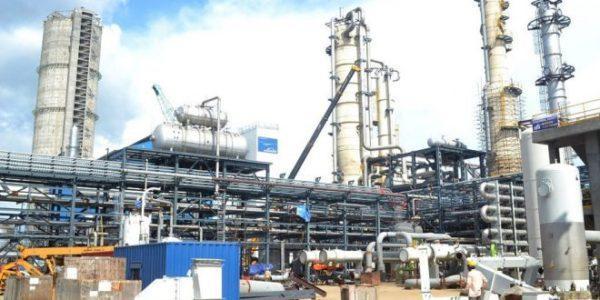
Nigerian President Muhammadu Buhari has opened a $2.5 billion fertilizer facility, with the goal of contributing to global supplies amid the impact of rising prices in the aftermath of the Russia-Ukraine conflict.
On Tuesday, during the inauguration of the Dangote Fertilizer Plant in Lagos, Nigeria’s commercial city, the Nigerian leader stated that the country “stands to gain significantly” from the plant’s production.
With the global fertilizer market thrown into a loop, Nigerian Central Bank Governor Godwin Emefiele said the plant’s opening is appropriate since it “has assisted Nigeria in solving a recurrent fertilizer problem.”
Agriculture is crucial to Nigeria’s economy, accounting for 25.8% of the country’s 173-billion-dollar GDP in 2021. Farmers, on the other hand, are sometimes hampered by limited supplies of fertilizer and better seedlings.
Nigeria expects “a boom” as a result of the new fertilizer factory, which has a capacity of 3 million metric tons per year, according to Buhari. Fertilizer is now readily available in bigger amounts and higher quality,” he added.
“We anticipate the emergence of a new breed of agropreneurs who will add value to farming and make the country food self-sufficient, encouraging many Nigerians to “now take up agriculture as a business.” he added.
Fertilizer from the plant, which is located in an industrial zone in Lagos, will be exported to a number of countries, including the United States, Brazil, India, and Mexico, according to Aliko Dangote, Africa’s richest man and the plant’s owner, amid supply disruptions caused by Russia’s ongoing war with Ukraine.
High fertilizer costs are already threatening farmers throughout the world, as a result of sanctions on Russia, a key global fertilizer exporter, where officials advised local manufacturers to temporarily suspend shipments in March.
“With surplus capacity to export to other African markets and the rest of the globe, the new factory would make Nigeria self-sufficient in fertilizer manufacturing,” Dangote added.